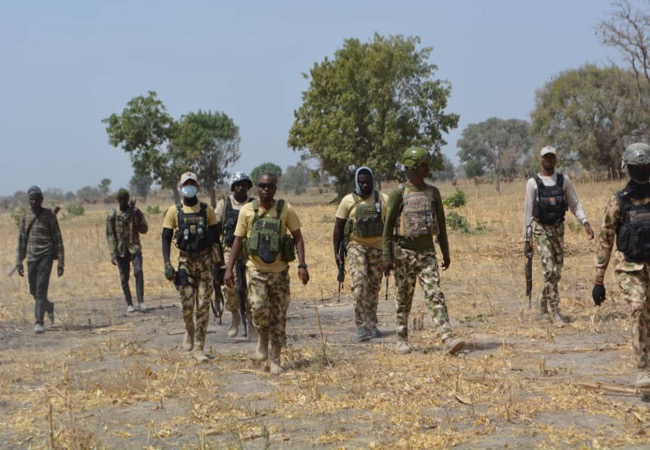The leaders from the five-member group of nations known as BRICS, consisting of Brazil, Russia, India, China, and South Africa began a three-day summit in Johannesburg on Tuesday, where they are discussing expanding the club that harbors ambitions of becoming a geopolitical alternative to Western-led forums like the Group of 7 (G-7).
Nigeria is one among many nations seeking membership of the Club. The latest gathering of leaders has garnered a level of international interest rarely seen since the group was first formed 14 years ago. Russia’s invasion of Ukraine along with a trade war between Beijing and Washington have reinvigorated the debate over whether the bloc will remain a loose trade alliance or become a new international coalition.
Dozens of countries have expressed interest in joining, including Nigeria, Argentina, Iran, Belarus, Saudi Arabia, and Indonesia. The candidates are as diverse as the BRICS bloc, which represents 40 per cent of the world’s population and a quarter of its economy.
China’s leader, Xi Jinping, held a state visit with President Cyril Ramaphosa of South Africa in Pretoria, and was then expected to travel to Johannesburg for the summit. Prime Minister Narendra Modi of India arrived in Johannesburg in the afternoon, The Times of India reported. President Vladimir V. Putin of Russia appeared virtually, to avoid an international arrest warrant for crimes against humanity committed during the war in Ukraine.
Mr. Xi met with Mr. Ramaphosa at the Union Buildings, the seat of the presidency in the administrative capital Pretoria. In the formal visit, Mr. Xi inspected an honor guard and shook hands with a row of cabinet ministers as cannon fire rang out, announcing the official visit. The two leaders held a short news conference afterward, reiterating their longstanding political and economic ties, but took no questions.
In Mr. Putin’s absence, Russia’s foreign minister, Sergey V. Lavrov, was leading the country’s delegation. After shaking hands with a row of officials on his arrival, Mr. Lavrov joined a group of traditional dancers. After a few unsure steps, he clapped along for a few beats before giving a thumbs up and walking away.
China, the biggest economy in the group, favors expansion to shore up its own influence, while an isolated Russia needs new allies as it digs in for a protracted war in Ukraine.
India and Brazil, with strong alliances among industrialized nations, favor a more cautious approach. South Africa, the smallest economy of the group, is pushing to have more African members and has invited more than 30 African leaders to join this year’s meeting.
The diplomatic challenges South Africa has faced over the summit reflects the geopolitical interests BRICS nations must balance — particularly the smaller countries that have to navigate their allegiances to more wealthy and powerful nations.
Mr. Putin is wanted by the International Criminal Court, which accuses him of being responsible for the abduction of Ukrainian children and their deportation to Russia. He had planned on attending in person, but spared South Africa the dilemma of whether to arrest him by deciding to appear virtually. Even so, South Africa has continued to face pressure from its Western allies over its close ties with the Kremlin.
In a show of neutrality, Mr. Ramaphosa called for abducted Ukrainian children to be returned and for the re-establishment of the Black Sea Grain deal, which allowed Ukraine to export grain to the world, especially countries in Africa with food shortages.
“We have resisted pressure to align ourselves with any one of the global powers or with influential blocs of nations,” he said in a televised address on Sunday.





